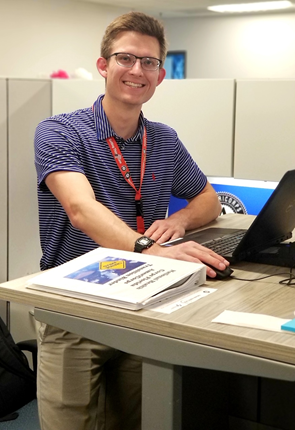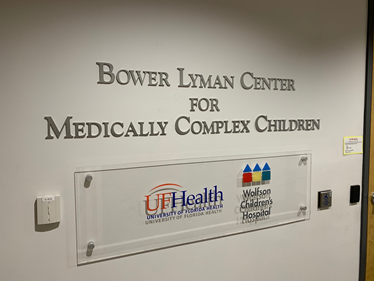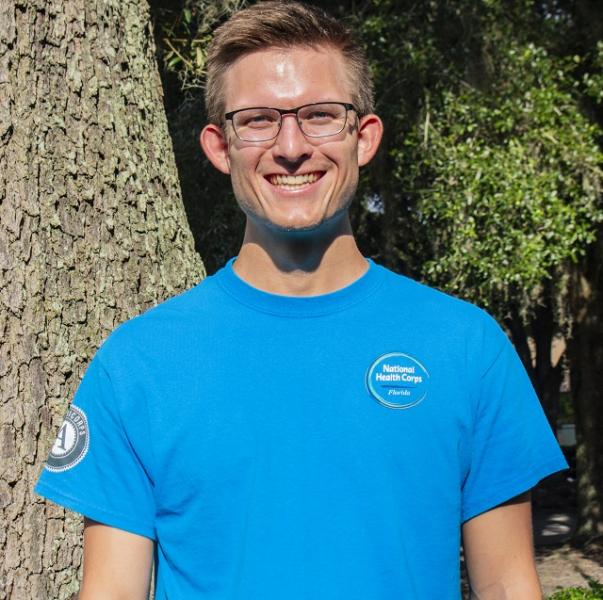Easing Healthcare Transition
 To many teenagers, the word transition sparks feelings of excitement. “I can move away from my parents!” “I can buy my own car!” “I can live my own life!” These exciting thoughts commonly reverberated in my friend group throughout my high school and into my college life. While there were road bumps along the way, my friends and I successfully transitioned to adulthood partly thanks to overall health and a strong support system. However, what if this was not the case?
To many teenagers, the word transition sparks feelings of excitement. “I can move away from my parents!” “I can buy my own car!” “I can live my own life!” These exciting thoughts commonly reverberated in my friend group throughout my high school and into my college life. While there were road bumps along the way, my friends and I successfully transitioned to adulthood partly thanks to overall health and a strong support system. However, what if this was not the case?
The patients at my host site, Jacksonville Health and Transition Services clinic (JaxHATS), face barriers to successful transition. Our population consists of youth and young adults aged 16-26 with a disability or special health care need. Our patients also commonly live in underprivileged communities throughout Northeast Florida. To these individuals and their families, transition poses a significant challenge amidst daily medical needs. My role as an outreach coordinator is to ease the transition process through patient visits and counseling sessions. These sessions address some of the key components of transition: education and vocation planning, public benefits and insurance planning, living arrangements, self-management, and provider transfer.
However, I have learned from my experiences that sometimes the most valuable resource I can provide to patients is a listening ear. In a recent encounter, I listened as a patient recounted his struggles of living with Spina Bifida, a serious neurological disorder. He delved into many of the negatives that resulted from his illness: using a wheelchair, feeling dependent on others, and being forced to live at home while his friends moved out for college. I listened intently and empathetically. I gradually shifted the conversation to the things the patient enjoyed for fun. Upon doing so, I learned this patient loves to attend rock concerts. Not just attend rock concerts. He loves to crowd surf at rock concerts. In his wheelchair. I was amazed by this and witnessed him light up as he discussed this activity he loves. This experience really opened my mind to the goal of  both transition counseling and the services my host site provides to our patients. Before this experience, I assumed a successful transition discussion had to mean providing some tangible service or resource a patient did not know before. This position has taught me the value of empowering patients in their unique talents and abilities.
both transition counseling and the services my host site provides to our patients. Before this experience, I assumed a successful transition discussion had to mean providing some tangible service or resource a patient did not know before. This position has taught me the value of empowering patients in their unique talents and abilities.
At JaxHATS, we offer our patients the knowledge and skills necessary to achieve their goals, despite increased adversity. While wheelchair crowd surfing may have been an extreme example, it illustrates the point that our patients should not feel limited by their chronic condition. Whether it be vocational rehabilitation or adult day programs, there are services in the local community to help our patients live life to the fullest. My role as an outreach coordinator is not only to educate our patients of these resources, but also to teach independence and self-management strategies. In one patient visit, I simply sat with the patient as she called and scheduled an appointment with a new doctor on her own. Through encouragement and general support, we at JaxHATS prepare our patients on their road to adulthood.

This blog was authored by NHC Florida member Andrew Chrystman
Andrew serves at JAXHATS Program at Wolfson's Children's Hospital as a Care Coordinator.